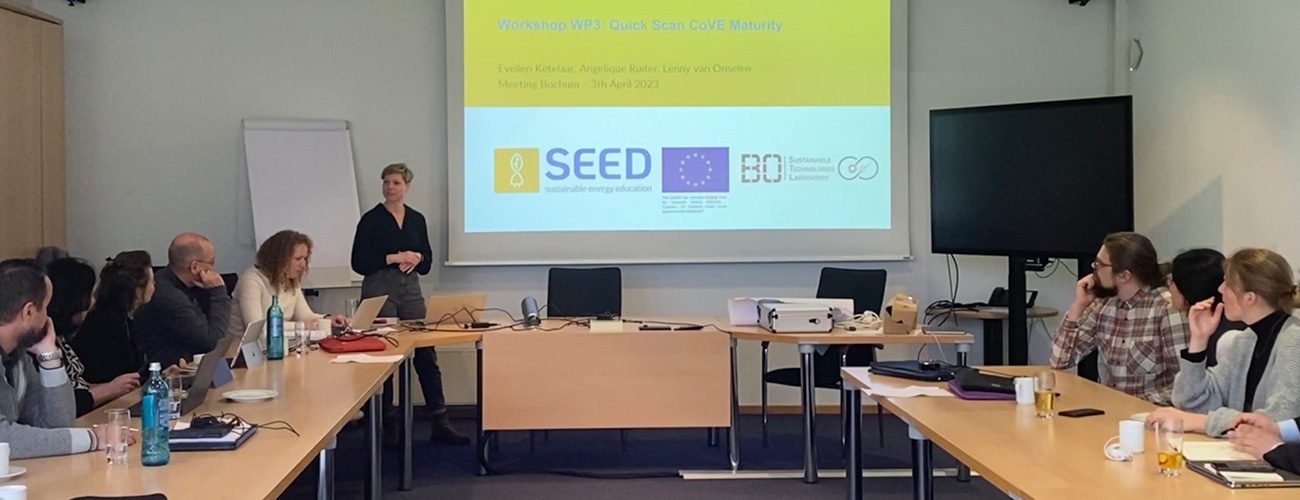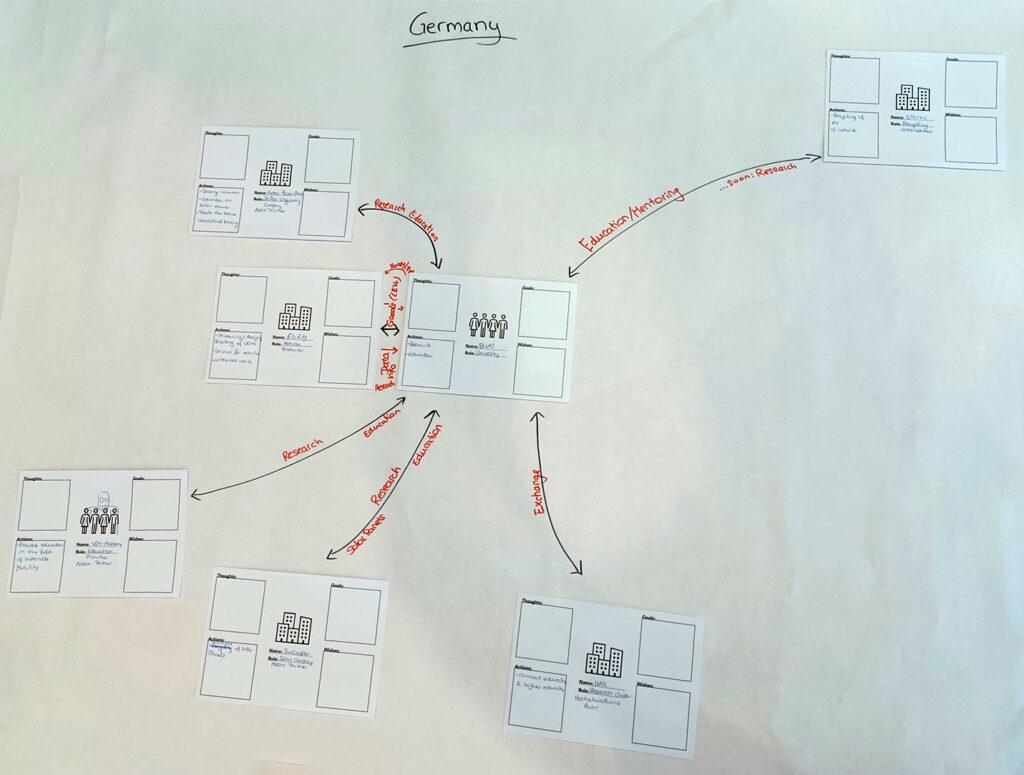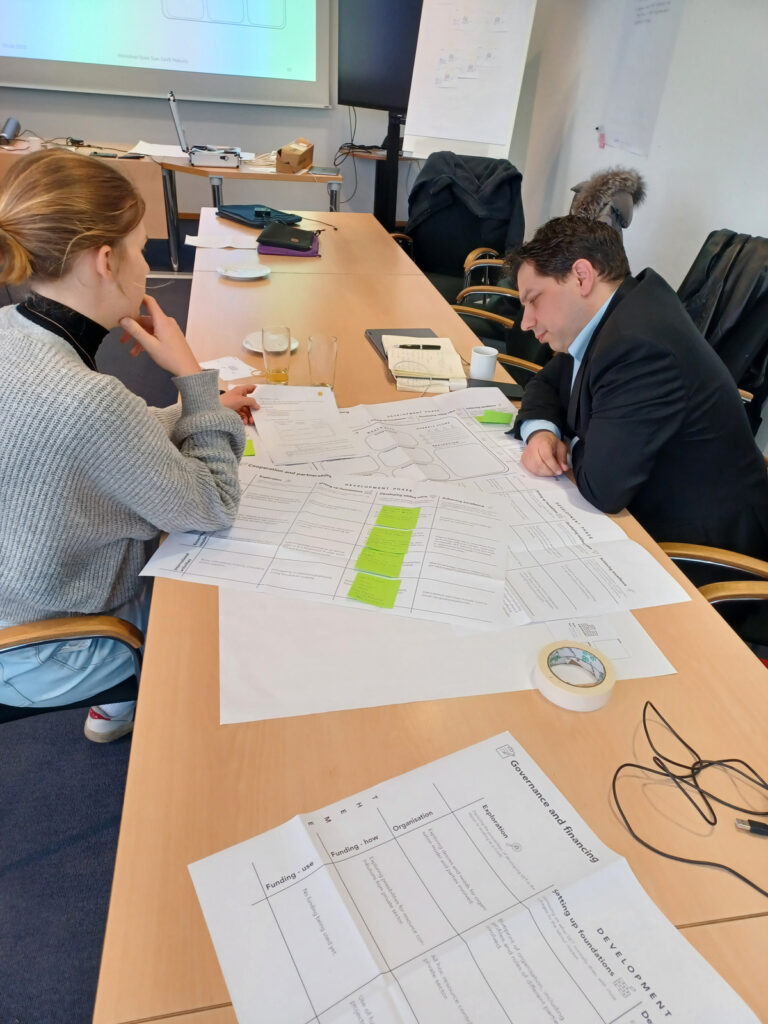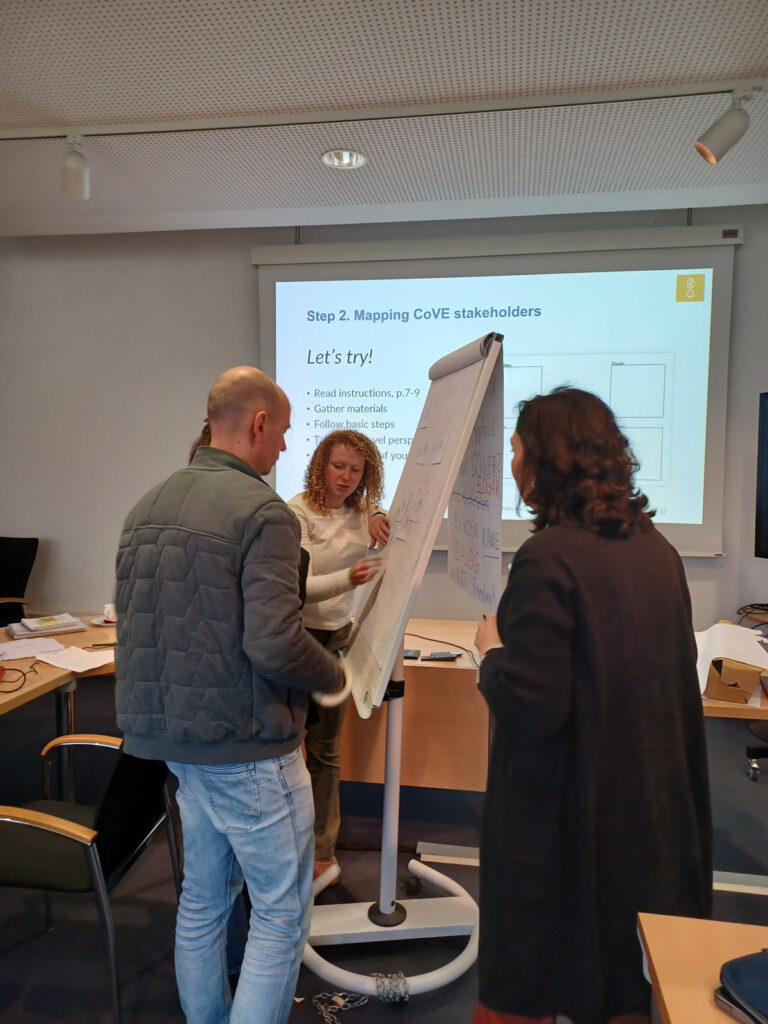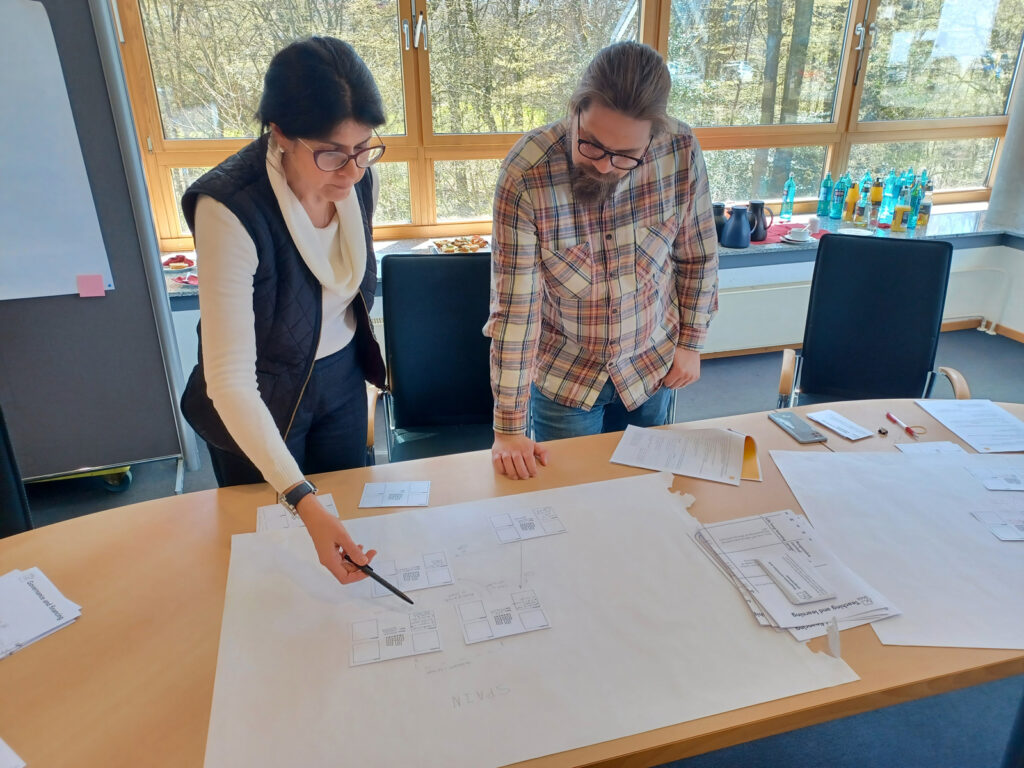WP3 – Regional Innovation and Skills Ecosystems plays a crucial role in strengthening cooperation within regional skills ecosystems to ensure the long-term sustainability of the COVES. The objective of WP3 is to build reciprocal relationships among stakeholders within each region and develop approaches and standards for reinforcing VET education on fossil-free energy. Its aim is to identify joint knowledge creation needs and develop tools to assist regional cooperation reinforcement. In brief, WP3 monitors the development of COVEs in each region using the maturity model of COVES and plans the development of COVEs accordingly. Furthermore, it promotes collaboration within and between regions by involving practitioners from the energy sector, students, lecturers, researchers, policymakers, and citizens, supports the creation of a common online knowledge database, and promotes the development and sharing of tools that can be used to replicate the success of the project in other regions.
Latest Developments in WP3 – Regional Innovation and Skills Ecosystems
In WP3 a quick scan is being developed, partly based on the CoVE Maturity Model . The goal of the quick scan is to have an overview of a CoVE’s maturity in a relatively short time, providing insights that can be used to formulate a regional development strategy. Following the CoVE Maturity Model, the quick scan three overarching categories:
i. teaching and learning;
ii. cooperation and partnerships; and
iii. governance and finance.
Some important underlying assumptions related to the Quick Scan CoVE Maturity concern:
• the fact that it is a reflection tool, assisting users to gain useful insights regarding COVEs‘development potential (so it is not intended at all to be a certification or quality standard), and
• the fact that it is a regional joint activity, as a broad overview of the CoVE is needed and different perspectives should be taken into account.
The discussion between participants executing the quick scan is an important feature of the instrument.
The Quick Scan CoVE Maturity consists of five steps, the last four being part of a regional workshop:
1. Preparation: The regional coordinator collects background information so as a good overview of the strategy, activities, procedures and stakeholders of the CoVE is available. A combination of different perspectives (i.e. a) teaching and learning, b) cooperation and partnerships, and c) governance and finance, e.g. project documents, descriptions of good practices, policy, etc.) should be evident in this overview. Also, the list of participants who are going to be invited in the regional workshop is finalised.
2. Mapping CoVE stakeholders: The first activity in the regional workshop is to visualise the CoVE by mapping its stakeholders. It gives an overview of the CoVE and the relations between the stakeholders. It also helps to take the right perspective (the CoVE as a whole) in the next steps.
3. Qualitative descriptions: Using discussion cards with questions on it, participants deepen and broaden their views on the three categories of the CoVE Maturity Model and the underlying themes.
4. Mapping CoVE maturity: In the adjusted CoVE Maturity Model, participants decide the phase of development of their CoVE on each theme in the model.
5. Reflection on insights: The last step in the regional workshop is to reflect upon and bring together the insights from steps 1-4 and exchange the insights per category with all participants of the workshop.
Workshop
During the transnational meeting at 3-4 April in Bochum, Germany, the regional coordinators were thoroughly informed on how to use the quick scan model in their own regions. The workshop focused on steps 2, 4, and 5 of the quick scan process, and step 3 was completed as a preparational task before the regional Stakeholders meetings. The provided materials, such as stakeholder cards, an adjusted CoVE Maturity Model, and a reflection canvas, were used and discussed for their utility in the process. Each region will use the quick scan in the coming month to gain insights into their CoVE’s developmental potential and formulate a strategy, resulting in a regional development plan later on in the project. The objectives of the work package are to empower regional innovation based on regional needs and to establish and extend a regional CoVE in each of the five participating regions.

